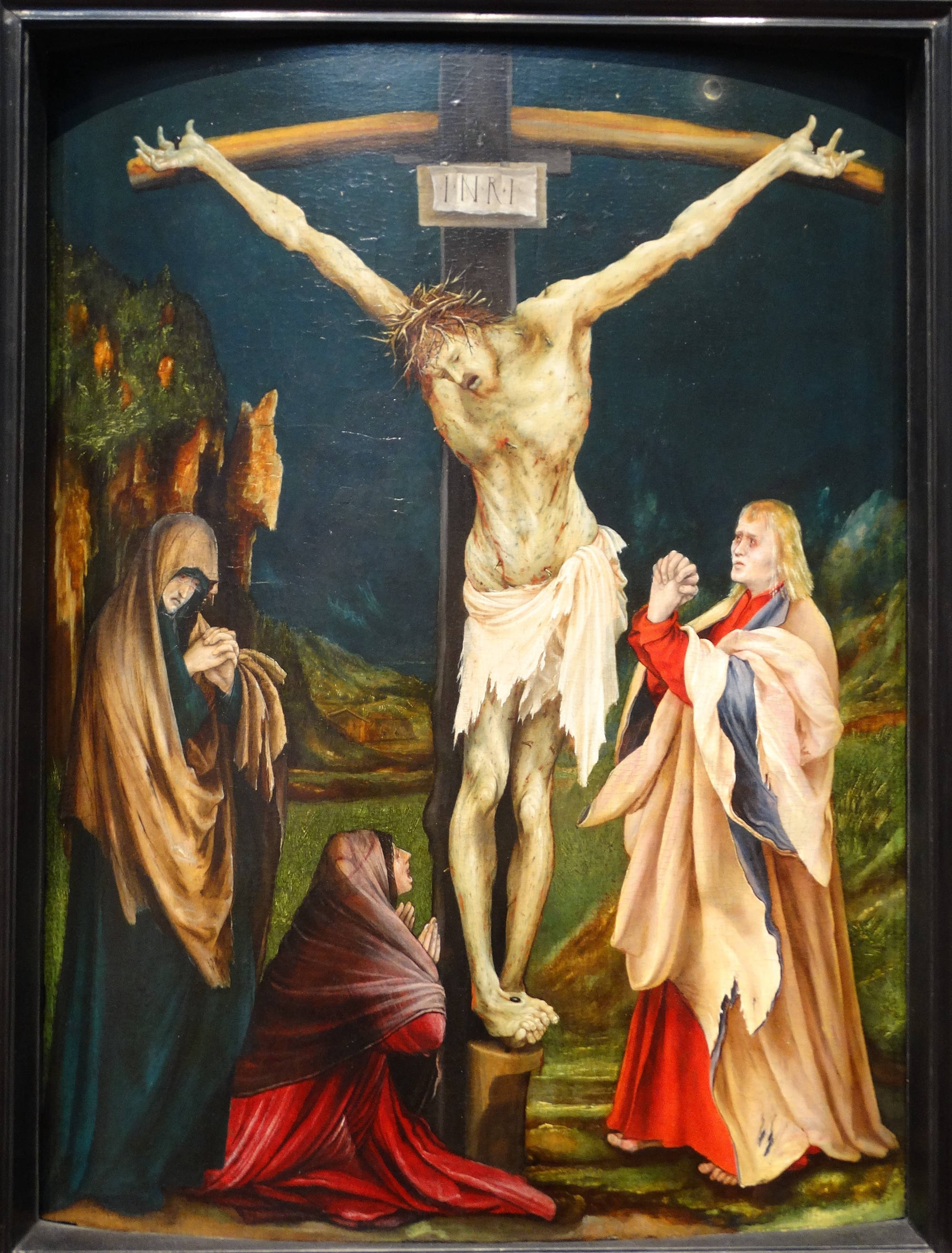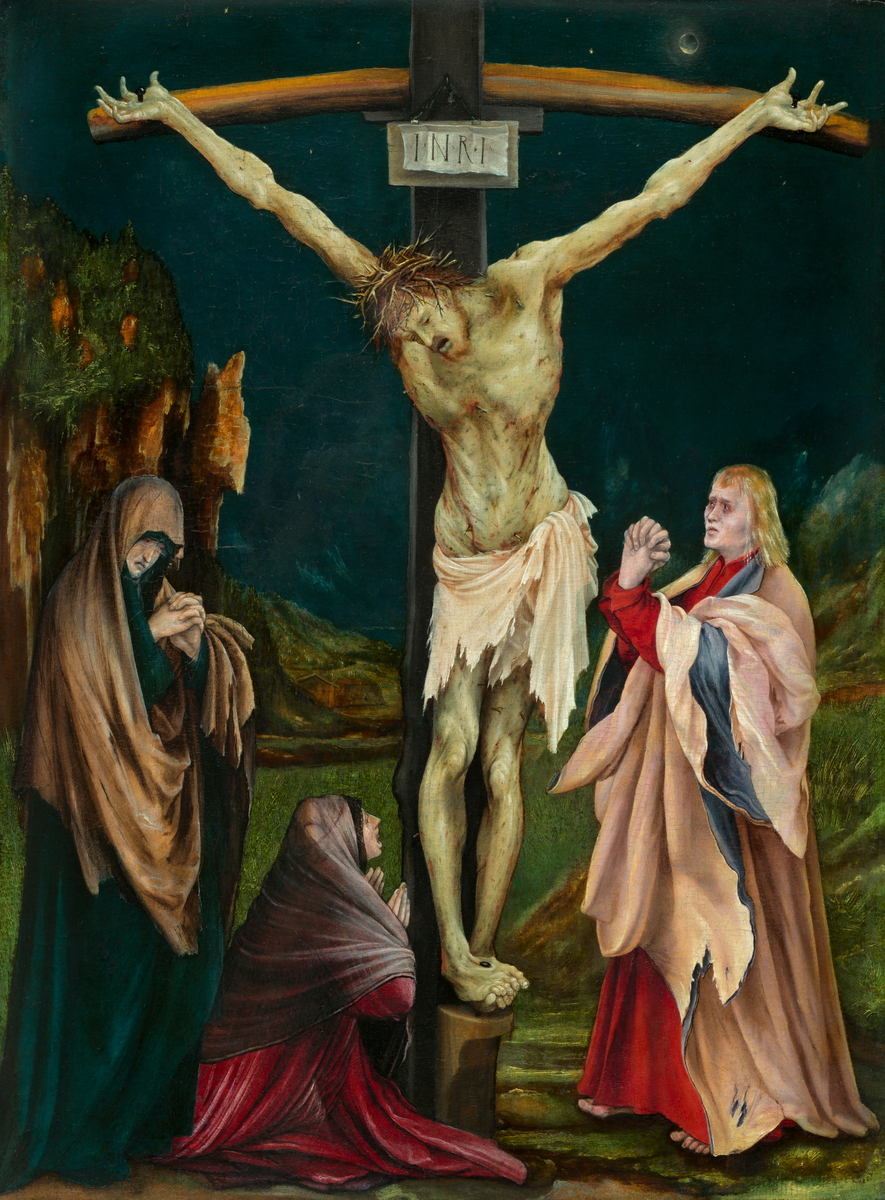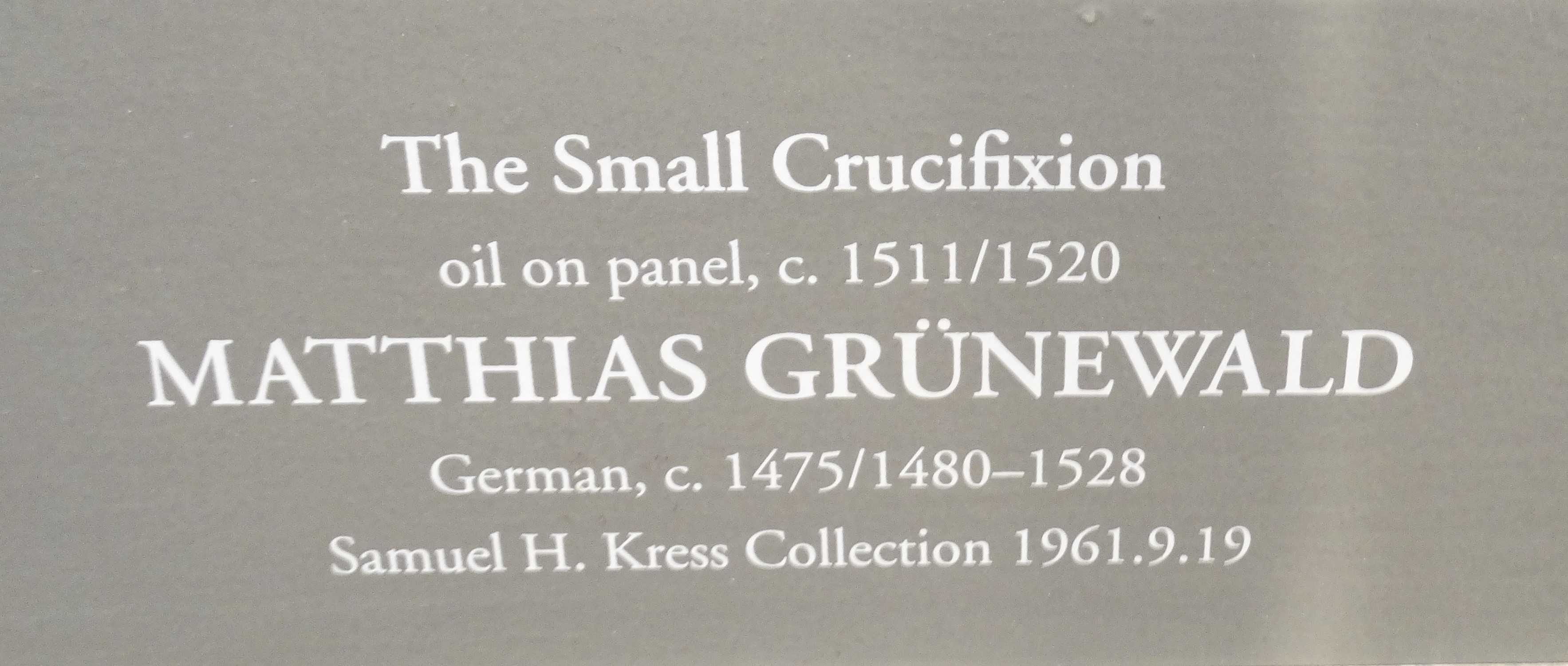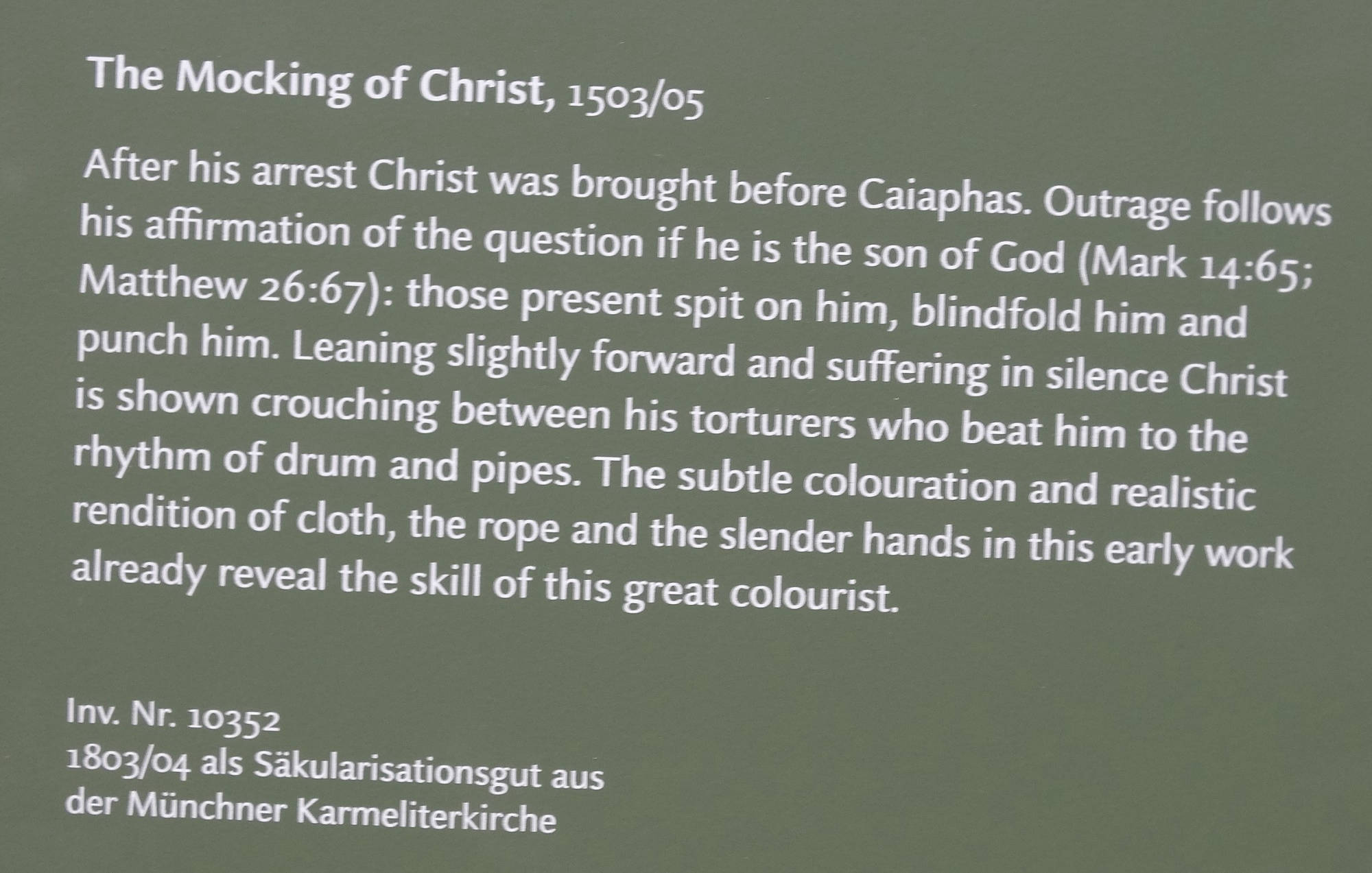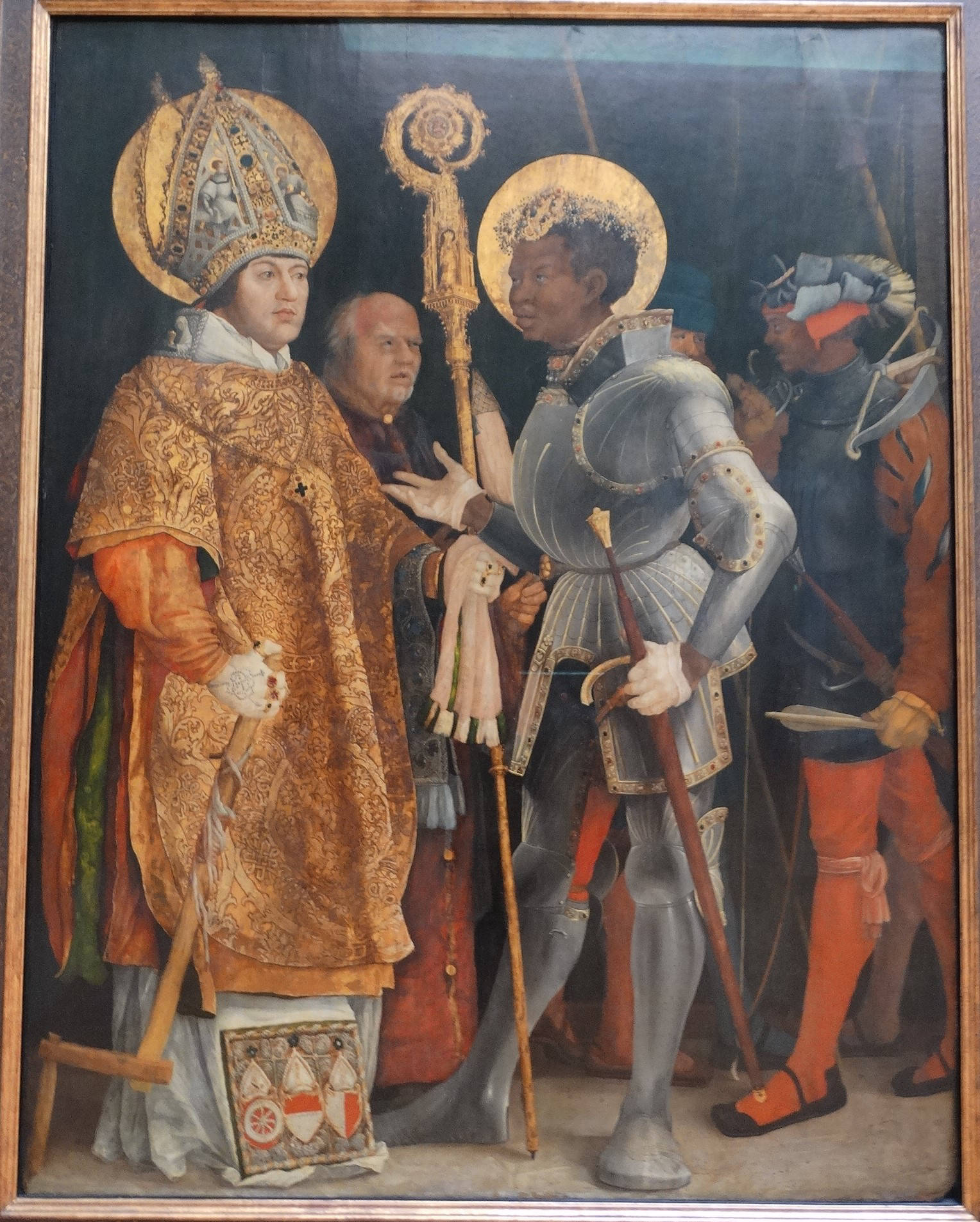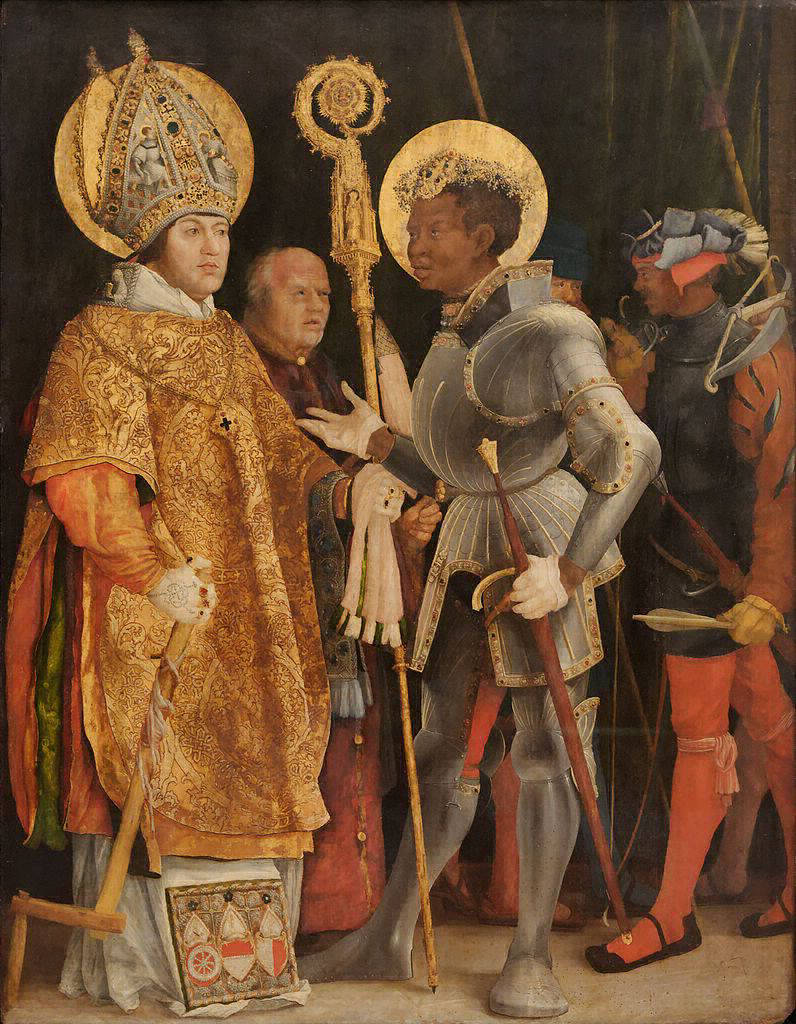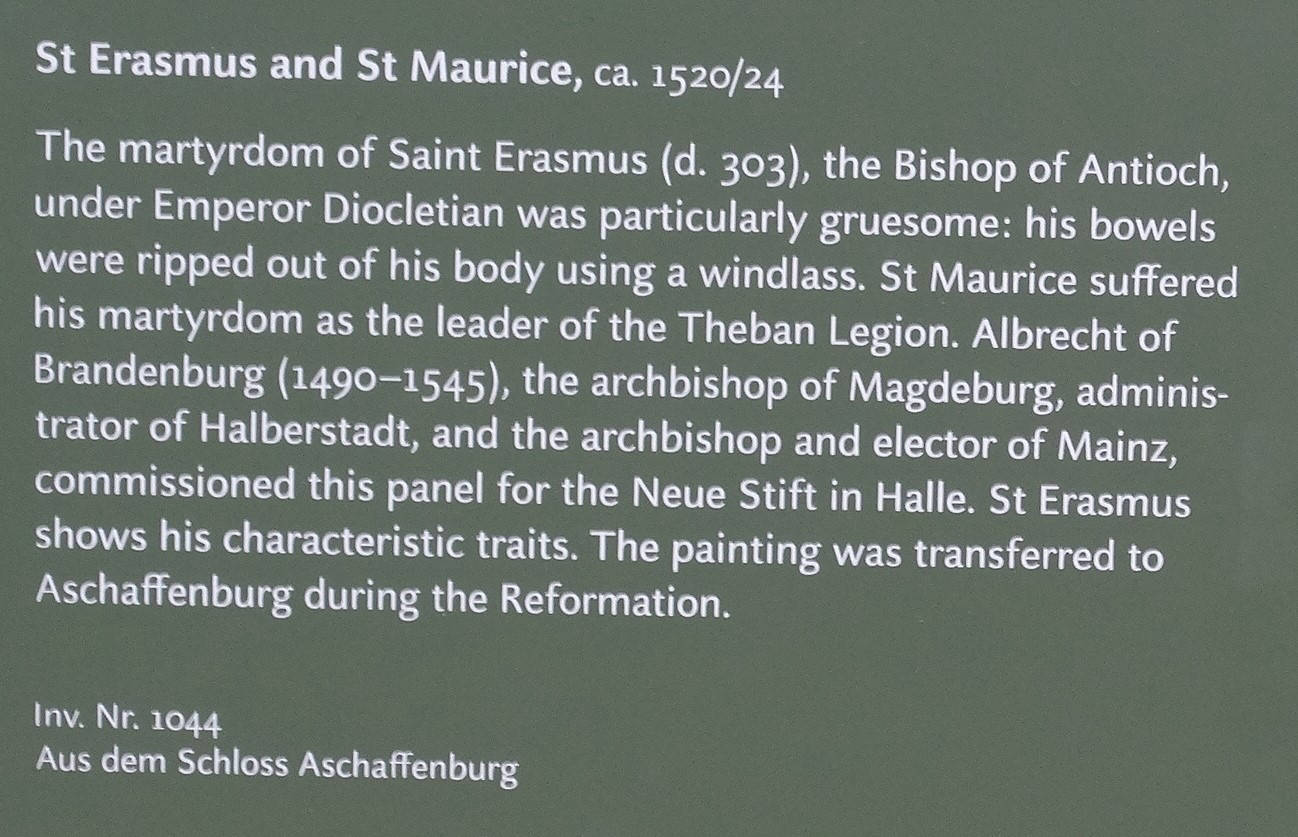Matthias Grünewald (c. 1470 - 1528),
was a German Renaissance painter of religious works who ignored Renaissance classicism to continue the style of late medieval Central European art into the 16th century. Only ten paintings—several consisting of many panels—and thirty-five drawings survive, all religious, although many others were lost at sea in the Baltic on their way to Sweden as war booty. His reputation was obscured until the late nineteenth century, and many of his paintings were attributed to Albrecht Dürer, who is now seen as his stylistic antithesis. His largest and most famous work is the Isenheim Altarpiece created c 1512 to 1516.
 The Small Crucifixion, c. (1511-1520)
The Small Crucifixion, c. (1511-1520) 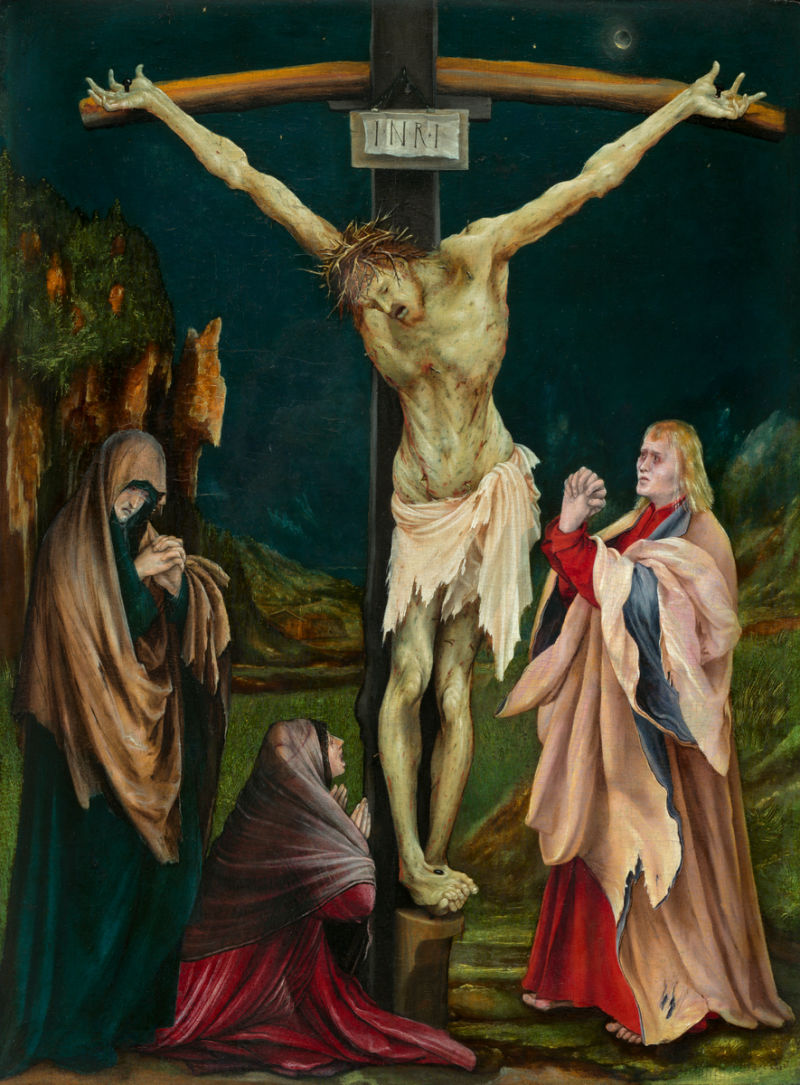 Original, NGA-DC. Visited in 2017-18.
Original, NGA-DC. Visited in 2017-18.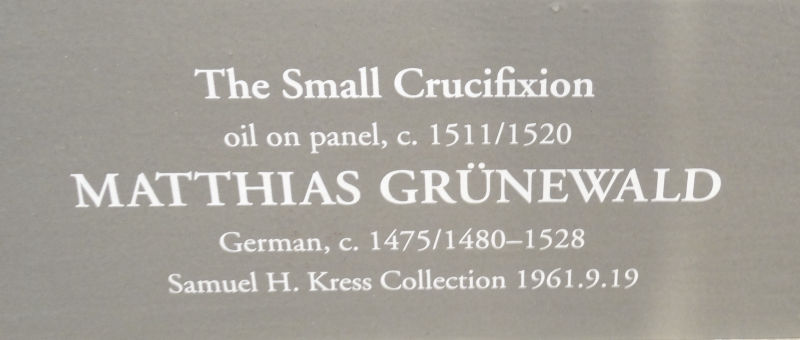 The Small Crucifixion, c. (1511-1520)
The Small Crucifixion, c. (1511-1520) 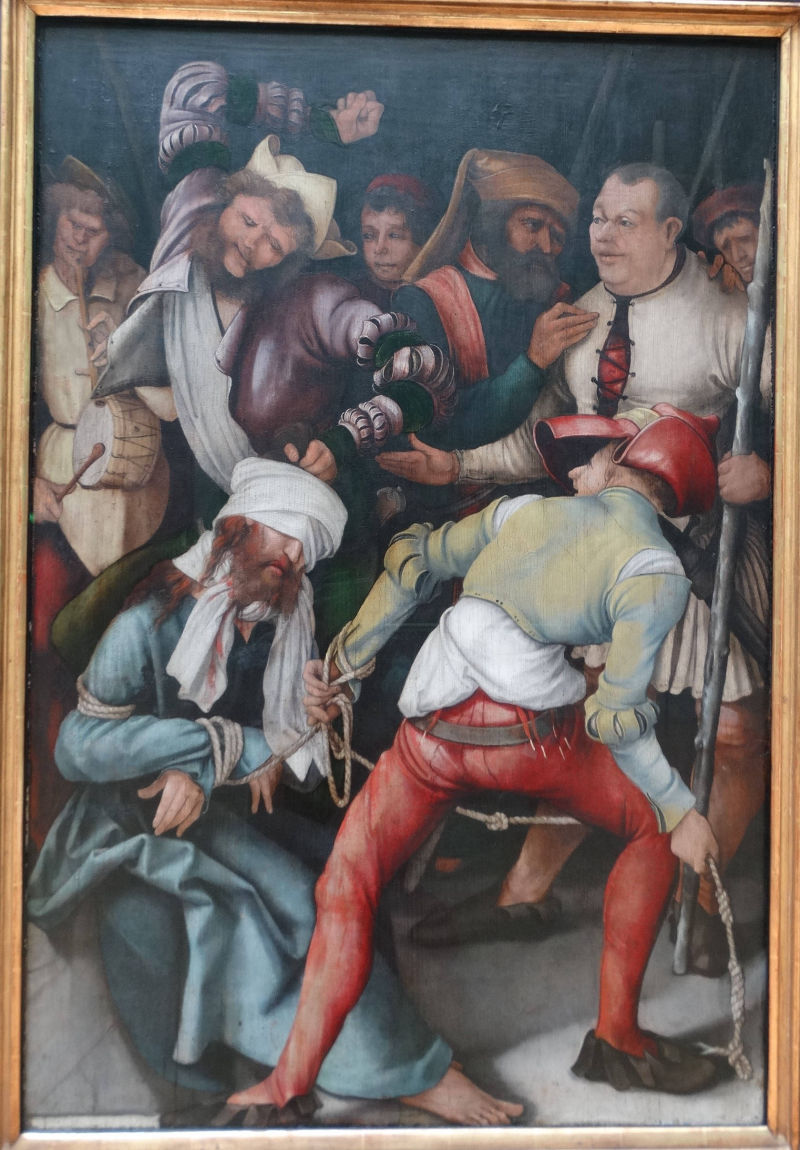 The Mocking of Christ (1503-05)
The Mocking of Christ (1503-05)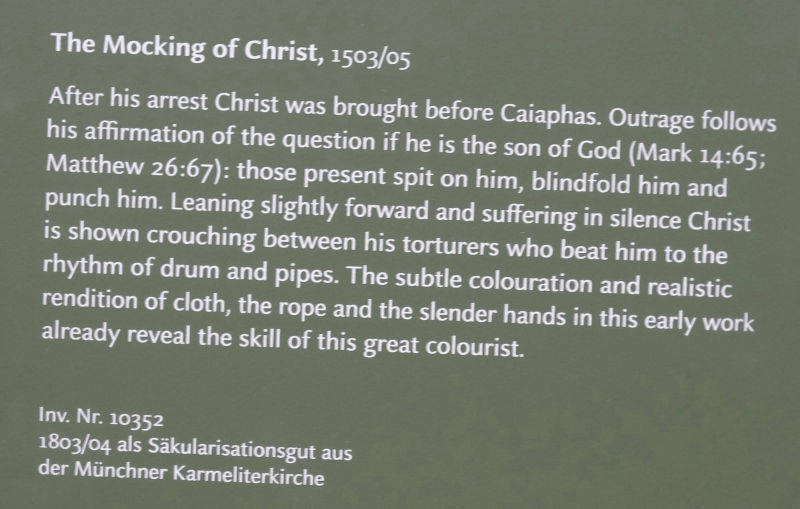 Original, Alte Pinakothek, Munich. Visited in 2019.
Original, Alte Pinakothek, Munich. Visited in 2019. 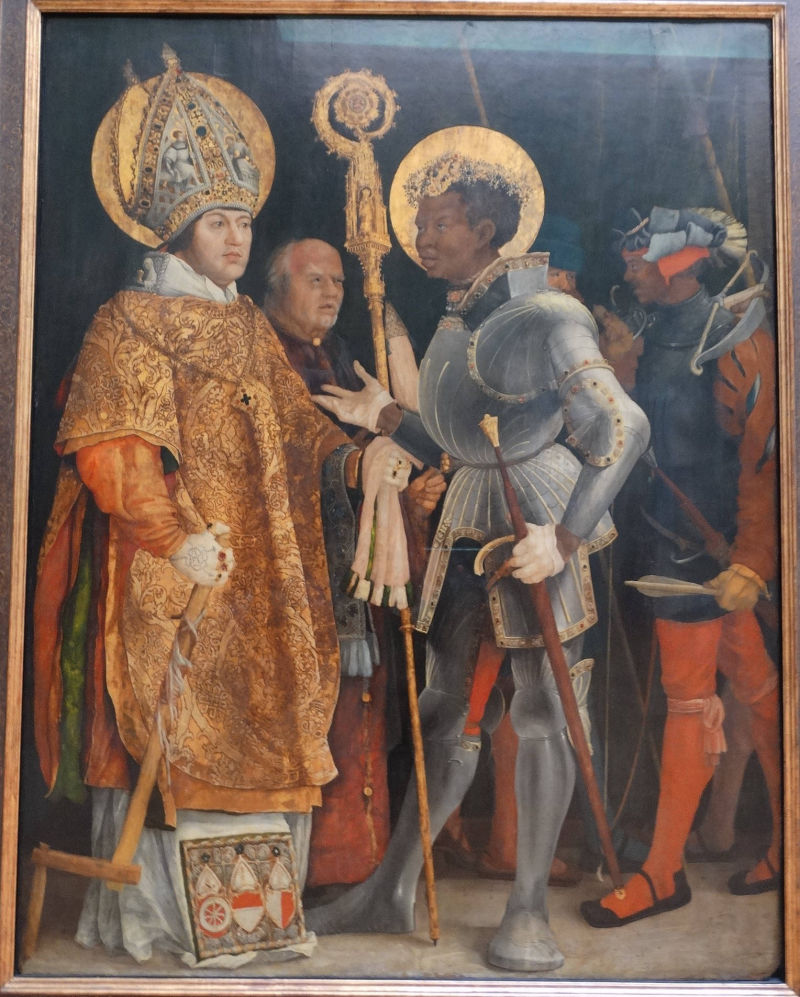 St Erasmus and St Maurice, ca. (1520-24)
St Erasmus and St Maurice, ca. (1520-24) 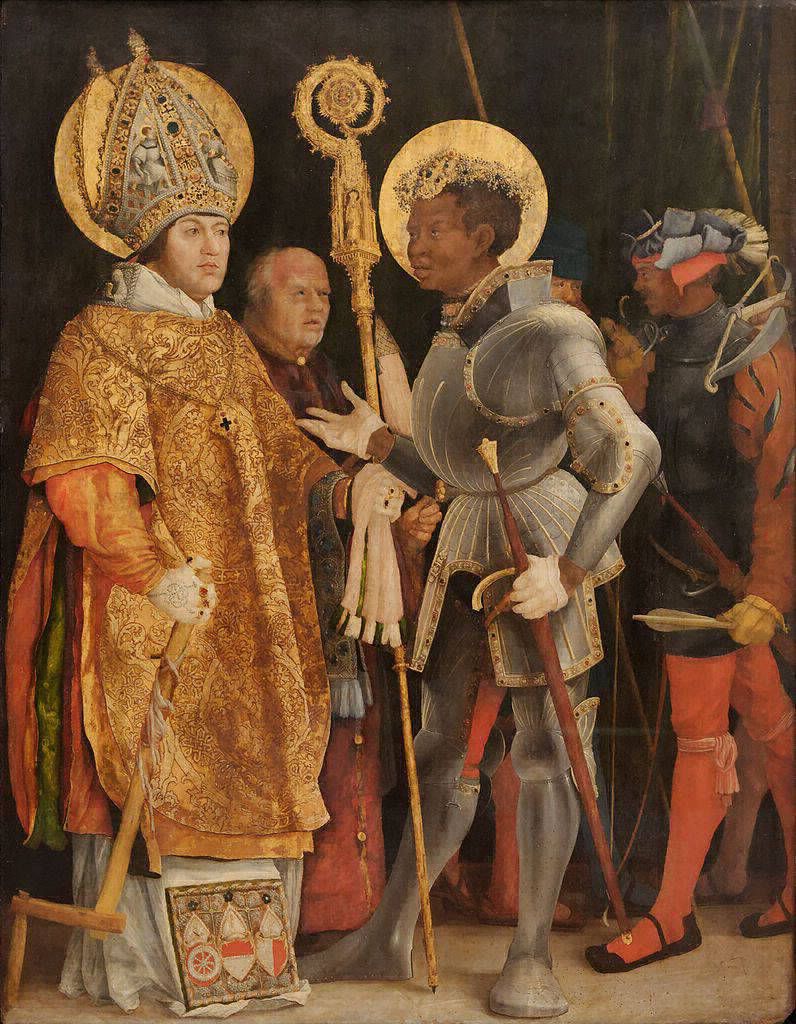 Original, Alte Pinakothek, Munich. Visited in 2019.
Original, Alte Pinakothek, Munich. Visited in 2019.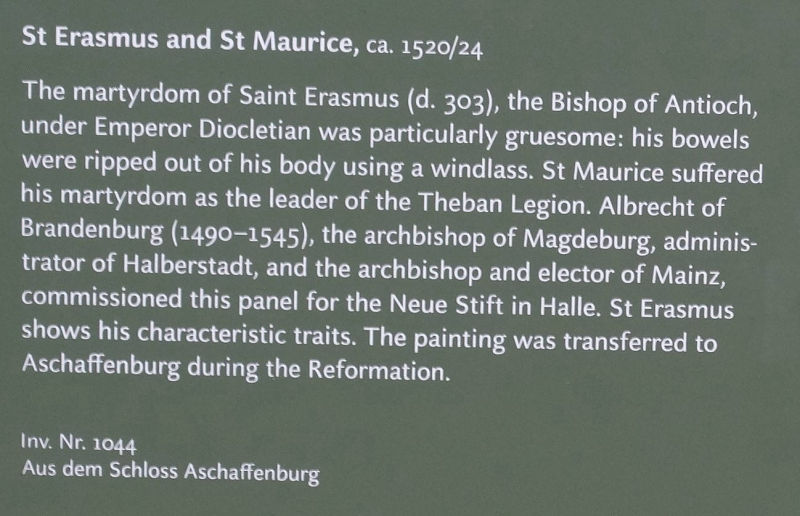 St Erasmus and St Maurice, ca. (1520-24)
St Erasmus and St Maurice, ca. (1520-24) 